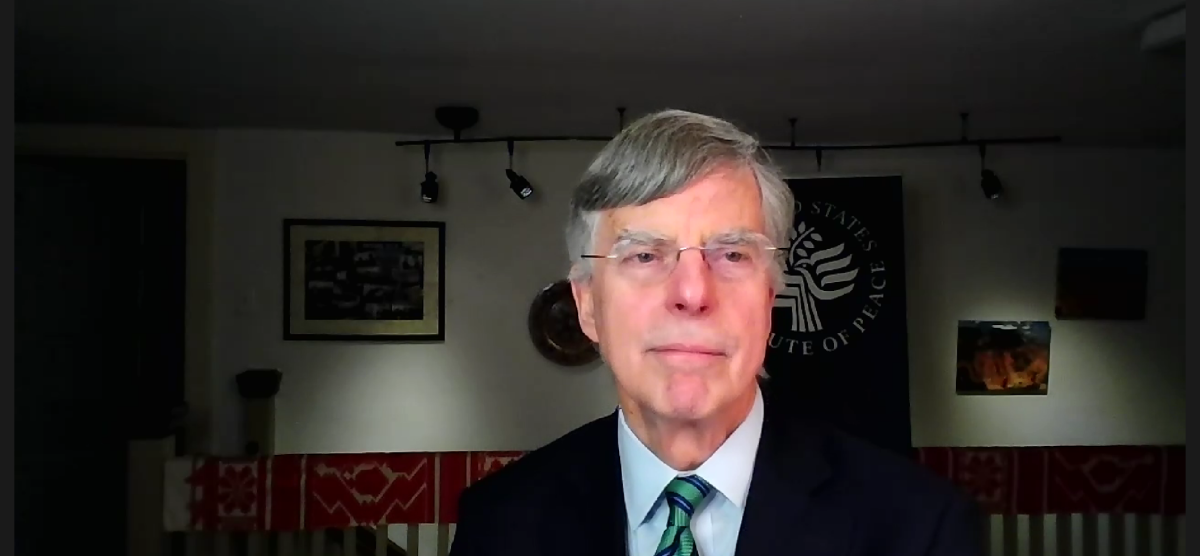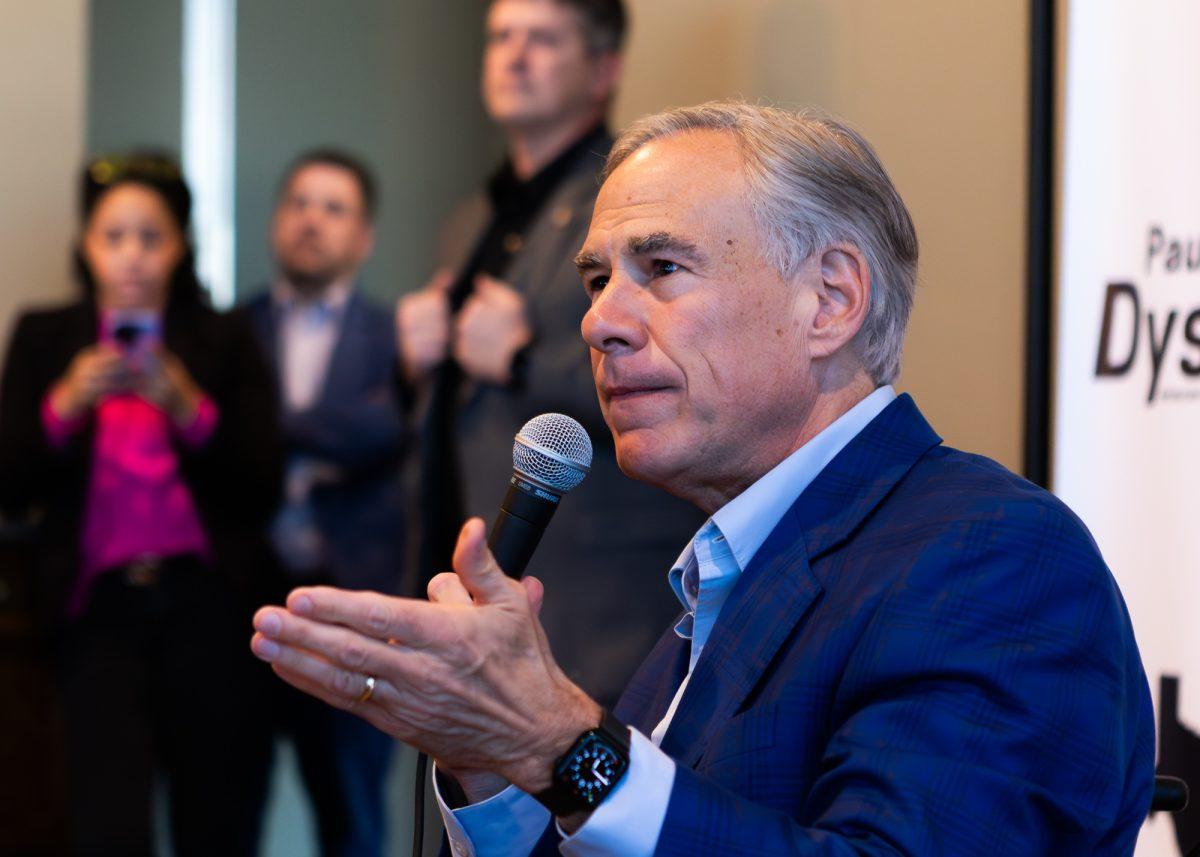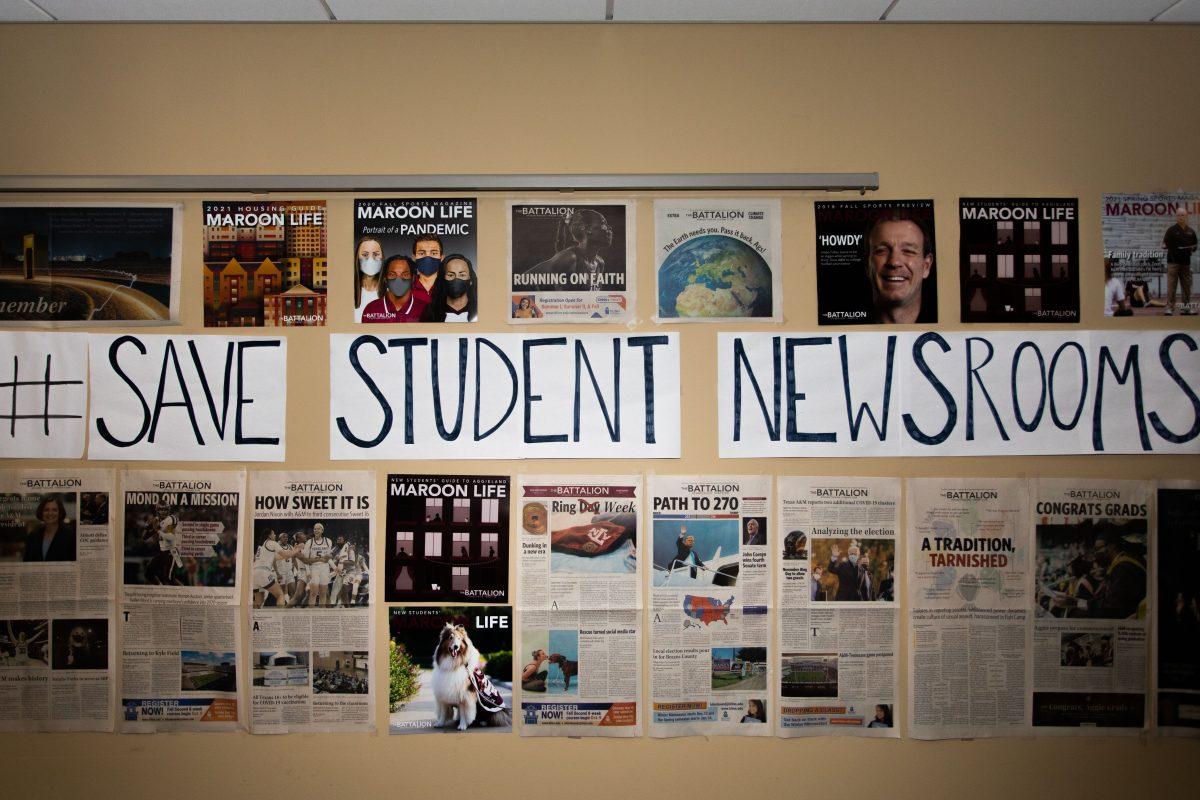On Tuesday, March 8, the Scowcroft Institute at the Bush School of Government and Public Service hosted William Taylor, the former U.S. ambassador to Ukraine from 2006-09 and chargé d’affaires, or acting ambassador, to Ukraine from 2019-20, to discuss the current Russia-Ukraine crisis.
Taylor started his talk with an overview of Ukraine’s current state. Taylor spoke about how the situation had been in the making for a while, due to tension that began with the occupation of the Luhansk and Donetsk regions in the east of Ukraine by what Taylor called “Russian puppet governments.”
Taylor also said this current invasion is taking place on three fronts, allowing over 200,000 Russian troops to move into the country. Russia was able to invade from the east past its border, from the North through Belarus and from the west through Transnistria, a separatist region of Moldova that borders Ukraine.
This three-pronged attack has allowed Russian troops to move quickly into many parts of the country, Taylor said. The Ukrainian cities of Kharkiv and Sumy on the eastern border with Russia are at risk of falling soon, he said. Additionally, Mariupol, a key port on the Sea of Azov, is surrounded and will fall soon, Taylor said, giving Russia more naval supremacy in the Black Sea — something they are already using to attack Odessa.
Despite this attack, Taylor applauded the incredible perseverance and bravery of the Ukrainian people and said President Volodymyr Zelenskyy is an “unlikely hero.” Despite winning his election with 73% of the popular vote, Taylor said his popularity had waned in the time leading up to the conflict.
Taylor said there are incredible odds that the Ukrainian people and military are fighting against.
“This is David and Goliath,” Taylor said. “This is 10-to-one by any metric.”
However, these odds do not understate the importance of this conflict, Taylor said.
“[The Ukrainian people] are defending their freedom; they are defending their nation,” Taylor said.
Another key point of this conflict, Taylor said, is the lack of support from the Russian populace.
“There is nothing in it for the Russian people,” Taylor said. “There are increasing signs that the Russian people do not support this, and it will only get worse.”
This lack of support points to a failure on Putin’s fault, Taylor said, as Putin has not been able to find an excuse for this action.
“Putin tried to manufacture a reason, and he couldn’t,” Taylor said. “There is no good reason [for this war].”
Seeing their sons and daughters come back dead is one of the main reasons Taylor said Russian support for the war is waning, and this will only grow stronger as more soldiers return to their villages dead. Additionally, Taylor said the economic sanctions on Russia from the West are also affecting the common people.
The people’s suffering “is Putin’s fault,” Taylor said.
With this groundwork laid, Taylor said, in his view, he saw four scenarios for how this could end.
The first situation was the worst case scenario, where the Russian military keeps fighting and grinds down the Ukrainian military. This scenario leads to the question of what happens to Kyiv, a city older than Russian civilization. Taylor wondered if the city would be leveled, like Russia had done to Aleppo, Syria, or if the city would simply be taken over.
Another question posed in this scenario regarded the governmental structure. Taylor said, more than likely, Putin would replace Zelenskyy with a puppet leader, but that the Ukrainian people would reject this government, and the Russian military would be unable to subdue this insurrection.
The second scenario Taylor said was the best case, but the most unlikely scenario: the Ukrainian military pushes the Russians back out of Ukraine. Taylor said this scenario could lead to a loss of faith in Putin by the people and military and may result in a coup d’état.
The third scenario, successful negotiation, Taylor said is unlikely based on early negotiations, but could lead to something more in the future.
The final scenario, Taylor said, would be something similar to East and West Germany or Vichy France in World War II. The Russians may be successful in taking over the capital, he said, and may set up their own government in Kyiv. However, Taylor said Zelenskyy would set up his own government in western Ukraine, leading the country from there. In this case, the internationally recognized country would be the one led by Zelenskyy, but the long-term future of this plan and how it would play out is very unclear.
In every one of these scenarios, the Russians would lose, Taylor said. Taylor said he could not see a way that the Russians could be successful.
“[Ukraine] will resist the Russians in every case,” Taylor said. “This was a blunder on Putin’s part, and he will regret it … because Ukraine will win.”
Each of these scenarios seems to paint Ukraine as being on their own, Taylor said. However, he said the United States should care about what happens in Ukraine.
“Ukraine is on the front line … defending Europe,” Taylor said. “They are also defending us as well.”
Taylor said the fall of Ukraine could put every country in Europe in danger, especially the Baltic States and Moldova. Taylor said we must change the course of modern history and start respecting the sovereignty of nations again.
“The only way we are going to get back to order … is if we recognize the sovereignty of nations again,” Taylor said.
Andrew Natsios, director of the Scowcroft Institute, said he did see some good coming out of this situation, though. Natsios said this situation united NATO and the West in a way that had not been done before. Taylor specifically pointed to countries like Sweden and Finland expressing interest in joining NATO, something they had not wanted before.
Natsios said this invasion could lead to a slippery slope, and if Russia takes Ukraine, it will not stop there.
“I think Putin is trying to establish the Russian empire,” Natsios said. “If Russia dominates Ukraine, then Russia is an empire, and empires do not stop.”









